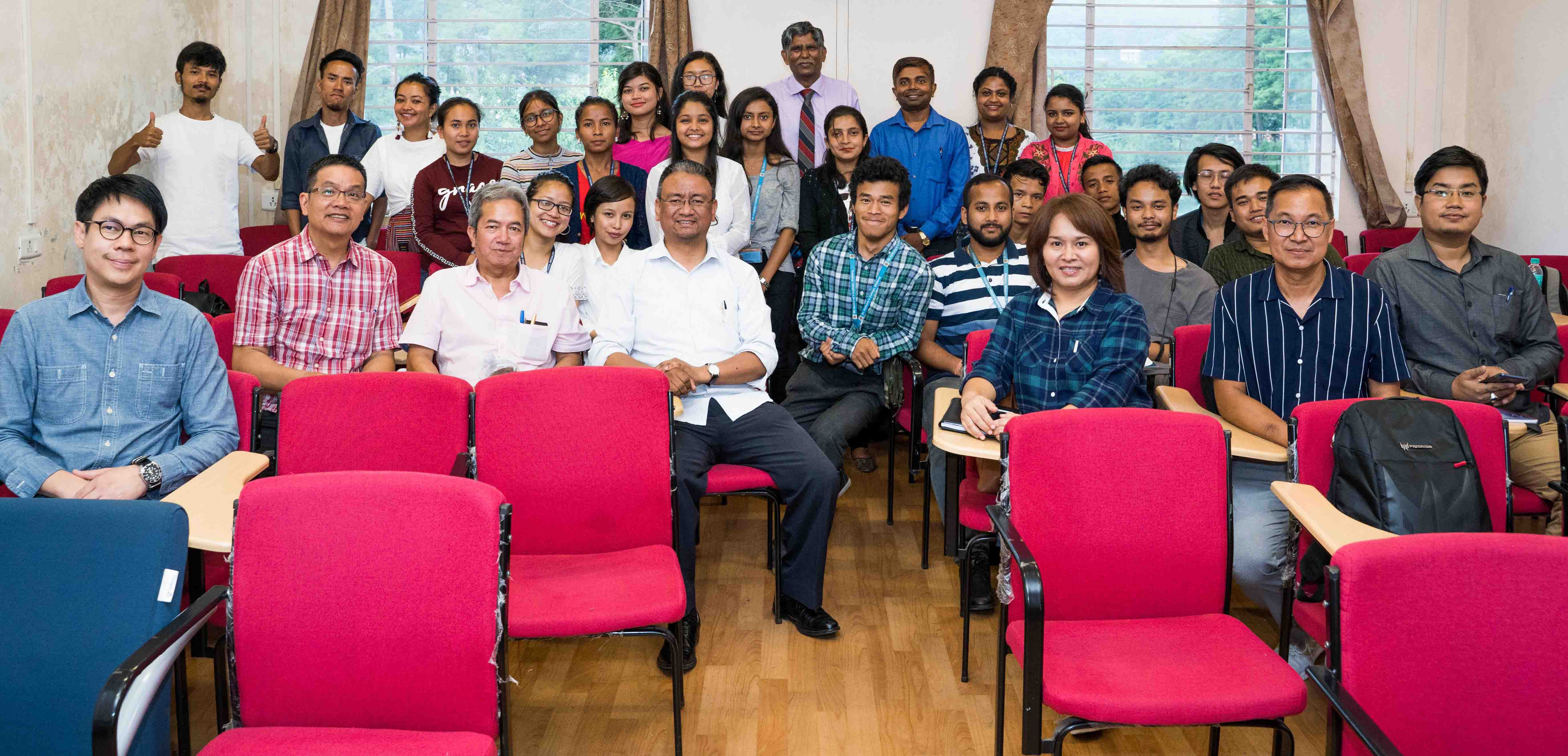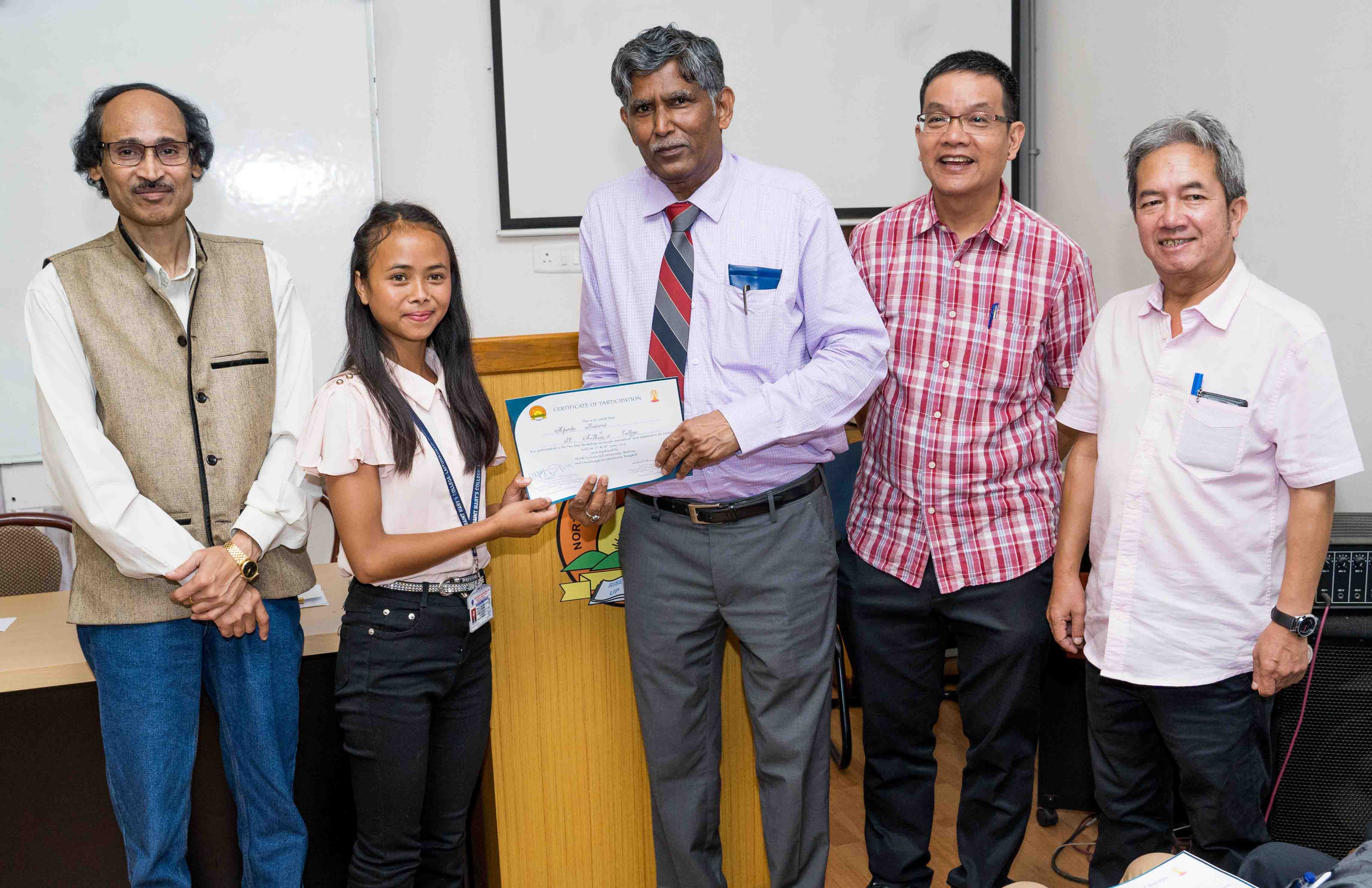Date: Jun 19, 2019

A two-day workshop on Design Innovation and Adaptation for Tourism was held on 17th -18th June 2019 in the Human Resource Development Cell of the North-Eastern Hill University, Shillong. Organized by the Design Innovation Centre of the Department of Cultural and Creative Studies, NEHU, Shillong, the workshop was animated by a team of innovators, graphic designers and artists led by Prof. D. Suppakorn of the Department of Cultural Management, Chulalongkorn University, Bangkok. The other members of the team included Dr. Permsak Suwannatat, Faculty of Fine and Applied Arts, Department of Creative Arts who focused on innovation, Prof. Trid Haritaworn whose primary focus was on graphic design, brand identity and corporate identity and Ms. Mintlada Jakchaianan who is both an artist and a designer.
Prof. D. Suppakorn, revealed that the workshop’s key objectives aim at developing stronger relationship between the two participating universities of Chulalongkorn and North-Eastern Hill University which recently signed an MoU. In addition, the team from Chulalongkorn University also aims at a connectivity above mere exchanges between the staff and students of the two universities. He emphasised on the significance of building a connection between the academic world and the communities of both Thailand and Meghalaya as part of her Royal Highness Princess Maha Chakri Sirindhorn’s initiative. He also informed that this workshop is part of a bigger project to enable the application of Thailand’s experience in the tourism industry for Meghalaya and that this workshop will allow for a preliminary gathering of Meghalaya’s cultural background data.
Student participants of St. Anthony’s College and St. Mary’s College, Shillong, numbering 30 attended the workshop. These colleges represent the spokes of the NEHU Design Innovation Centre and during the workshop were engaged in the cultural mapping of the lifestyle products of Meghalaya, which was important for analysis and application of concept design required from the perspective of fashion and textile. This mapping enabled idea generation, identity formation and discussion based on the SWOT marketing technique of ‘Strength’, ‘Weakness’, ‘Opportunities’ and ‘Threat’. Brainstorming sessions was part of the first day programme of the workshop where storytelling elements and motifs are derived from the culture of the people of Meghalaya through various exercises in which the student participants were engaging with the Thai team.
Dr. Permsak Suwannatat, Faculty of Fine and Applied Arts, Department of Creative Arts revealed that the data derived from the student participants on the first day of the workshop would become key elements towards designing a prototype of lifestyle product in the future.

The second day of the workshop was devoted to exploring issues of certain questions pertaining to lifestyle products in which a business canvas along with its business strategy was taught to the participants.
This data collection, according to Prof. D. Suppakorn, is “a learning process” for product development based on textile development. He calls it “a collective endeavour” which will become vital in a near future. According to his estimate on the workshop, he noted that the workshop allowed a gathering and an exchange of knowledge to building a roadmap towards creating a design.
The two-day workshop ended with a valedictory function chaired by Prof. S. K. Nanda, Head, Dept. Of Cultural and Creative Studies, NEHU, Shillong. Jacob L. Shylla, coordinator, RUSA cell, St. Anthony’s College, in a feedback taking, commented that the workshop was an eye-opener which laid stress on the human aspect.
Prof. S. K. Srivastava, Hon’ble Vice Chancellor, NEHU, Shillong, before distributing the certificates of participation, commented on the positive contribution of the workshop and thanked Her Royal Highness, Princess Maha Chakri Sirindhorn and Chulalongkorn University, Bangkok for providing valuable inputs to the programme and the collaborative project in general. He also laid stress on the opportunity given to young minds for developing ideas for innovations with an indigenous touch. He also mentioned that the workshop delivered on the objectives of the collaboration towards the best interest of the two countries.
The valedictory function was brought to a close with Prof. Desmond L. Kharmawphlang offering the vote of thanks.